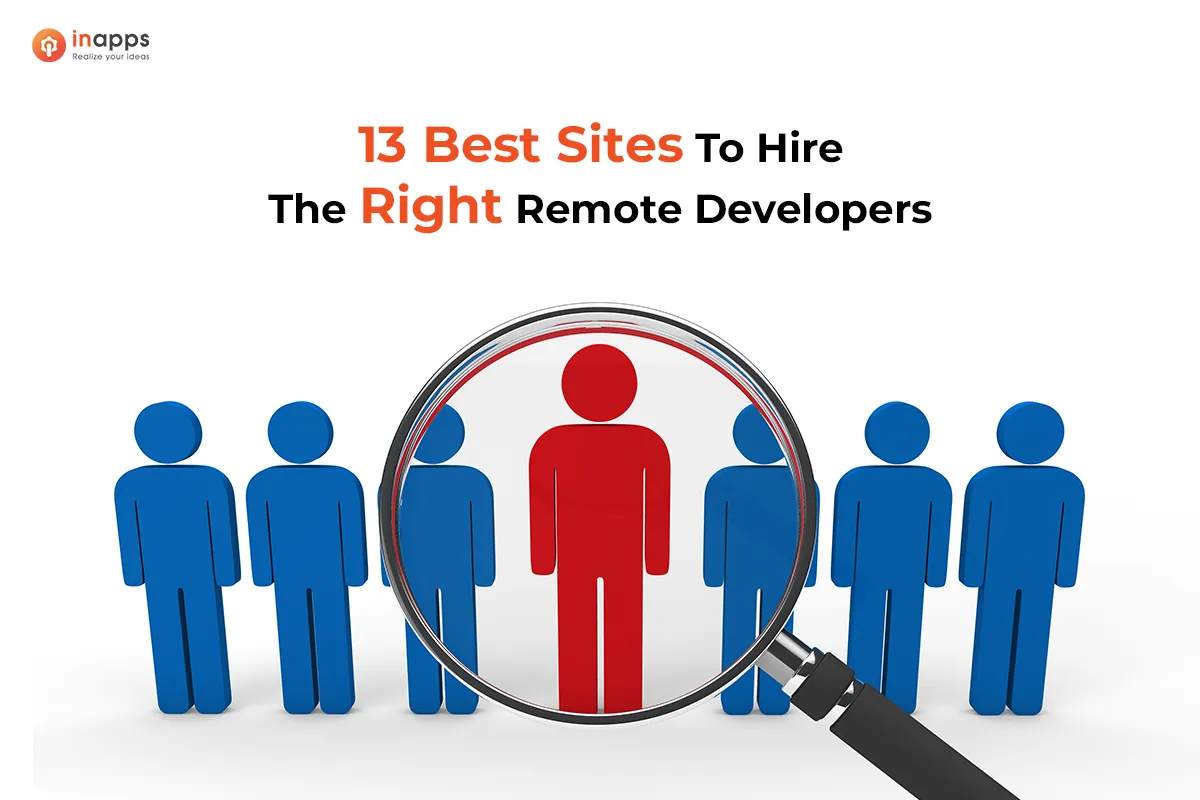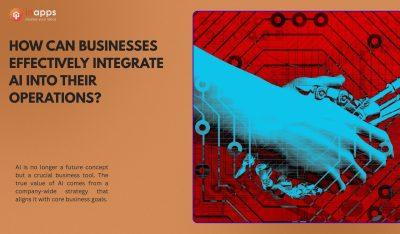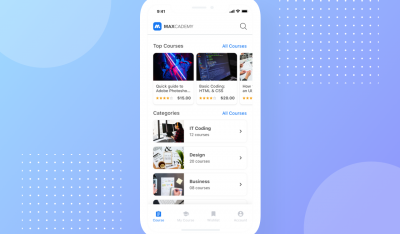- Home
- >
- Offshore News
- >
- 13 Sites To Help You Hire The Right Remote Developers Fast
Are you trying to find the right remote developers who can transform your project from good to exceptional? This article can help businesses seek top-tier tech talent regardless of geographical constraints. We’ve collected a list of reliable platforms where you can hire remote developers with the specific skills you need. From startups to established companies, the insights shared here aim to simplify your search process, ensuring you match with the right IT professionals. Let’s dive in!
1. What Does A Remote Developer Do?
A remote developer is someone who writes and fixes computer software from a location outside of a traditional office setting, often from home or a co-working space. Their job is pretty much the same as any software developer who works in an office: they create applications and websites, solve technical problems, and work on making software better and more user-friendly. The difference lies in their work environment. They use the internet to communicate with teammates and clients, share their work, and access the tools they need to do their jobs.
For example, if a company wants a new website or an app, a remote developer can design, code, test, and update it just like an in-office developer would. They might also attend virtual meetings, collaborate on projects using online platforms, and submit their work electronically.
Being a remote developer requires good communication skills and self-discipline because they have to manage their time effectively and stay productive without direct supervision. They also need to be good at solving problems on their own and comfortable with not having immediate, in-person access to team members or managers for help or guidance.
2. 13 Best Sites To Hire The Right Remote Developers
2.1 Hire Dedicated Remote Developer at InApps Technology
InApps Technology is a trusted software outsourcing company where businesses can hire dedicated remote developers or an entire offshore team. They boast a large talent pool of over 500 qualified talents on the InTalents Platform, ensuring a fast and efficient match of the right resources for client projects. The diversity in expertise covers a wide range of areas such as Frontend/Backend Development, Data Scientists, DevOps, Mobile Development (Native and Cross-Platform), Automation Testing, Project Management, and Business Analysis. Rates vary by level of expertise, with middle to senior levels available to cater to different project needs.
Reputable listing platforms, like Clutch, have ranked InApps as a top company in Southeast Asia for consecutive years. This reputation shows their commitment to delivering top-tier services, powered by a vetting process that ensures only the top 5% of talents make it to their talent pool. The high client satisfaction rate (98%) and customer retention rate (70%) speak volumes about the quality of developers and the successful projects delivered.
InApps employs a customized approach to match candidates with projects. This involves considering not just the technical match but also the candidate’s ability to integrate well with the client’s team and work culture. Clients are often involved in the final selection process, where they may interview shortlisted candidates to ensure a mutual fit.
They also include dedicated project managers for overseeing timelines, deliverables, and team coordination. Their approach ensures that agile project management practices are followed, contributing to the timely delivery and high quality of projects.
2.2 Toptal – Only Hire Top 3% Remote Developers
Toptal boasts a rigorous screening process, accepting only the top 3% of applicants. Some have worked at big organizations, like Facebook, Goldman Sachs, and Cornell University. Hiring remote developers at Toptal ensures that clients have access to highly skilled developers with a proven track record of success. The platform hosts a wide range of talents, including front-end and back-end developers, mobile app developers, software engineers, and more. This diversity allows businesses to find professionals with the specific skill sets they need.

Toptal offers flexibility in hiring, allowing companies to engage developers for full-time, part-time, or on a project basis. This flexibility caters to varied project needs and budget constraints. Toptal promises to match businesses with developers quickly, often within 48 hours. This rapid matching process is ideal for companies looking to accelerate their hiring process.
They also provide a risk-free trial period for clients. If a client is not satisfied with the developer’s performance during the trial, Toptal won’t charge them for the work done, significantly reducing hiring risks.
However, Toptal doesn’t come without any weaknesses. Given its focus on top-tier talent, Toptal may not be the best fit for companies looking for entry-level developers or those with lower-budget projects. Some clients may find the platform’s automated matching process less personal. Although efficient, it might not fully capture the nuanced needs of complex projects and an in-depth consultation.
2.3 Upwork – Hire Remote Developers Your Way
Upwork offers access to millions of remote developers for hire from around the globe, covering a broad range of skills and experience levels. So it’s easier for businesses to find software freelancers for almost any type of project. Also, businesses can hire freelancers for short-term tasks, longer projects, or ongoing work on an hourly or fixed-price basis.

User-friendly interfaces for clients and developers streamline job postings, proposals, communication, contracts, and payments. Another pro is payments to freelancers are released only when clients are satisfied with the delivered work. Upwork has a feedback and rating system that helps businesses evaluate potential hires based on past performance. This transparency builds trust and aids in making informed hiring decisions.
Despite those benefits, some may hesitate to hire remote software developers on Upwork because they charge service fees. Remote developers for hire are charged a sliding fee based on their earnings, while clients pay a service fee on payments to freelancers. Besides, many don’t like depending on the platform to resolve disputes, especially if the outcomes do not align with one party’s expectations.
2.4 Freelancer
Freelancer is one of the most popular platforms for hiring freelancers across a variety of fields, including software developers. Like Upwork, Freelancer.com hosts millions of freelancers from around the globe. However, Freelancer is better for businesses with tight budgets as it offers access to talents from regions with lower living costs.

The platform provides an escrow payment system, so funds are only paid to freelancers once their work is reviewed and approved. Unlike many other platforms, Freelancer.com allows clients to post contests for specific projects, inviting freelancers to submit their best work. But this also means clients must conduct thorough vetting to find the right software engineers that meet their project requirements.
For remote software freelancers, high competition can lead to overbidding, where they may lower their rates excessively to win projects. While this can be advantageous for clients, it may also reflect on the quality of work or sustainability. Both freelancers and clients are subject to fees, which can add up, particularly on smaller projects.
2.5 Fiverr
Fiverr is a widely recognized remote hiring platform that revolutionized the freelance marketplace. Unlike platforms where freelancers bid on projects, Fiverr’s model is based on fixed-price “gigs.” This clarity in pricing helps businesses budget for services without negotiations. With services starting as low as $5, Fiverr is accessible to businesses of all sizes, including startups and small businesses looking for affordable solutions. Payments are made upfront but are held by Fiverr until the service is delivered to the client’s satisfaction, offering financial protection to both parties.

However, Fiverr comes with a cost. Given its vast marketplace, finding the right remote developers may require careful vetting and attention to reviews. Like Freelancer and Upwork, Fiverr charges buyers a service fee on purchases, which can add up, especially for smaller gigs. Sellers also face fees, which might impact their pricing. While perfect for discrete tasks, Fiverr’s gig-based model might not be suitable for more complex, ongoing software projects that require deep customization. Also, Fiverr may not be the best for more elaborate projects that require direct email or phone communication.
2.6 Guru – Secure & Flexible Place to Hire Remote Developers
Guru.com is another notable remote hiring player, offering a platform for businesses to connect with freelance professionals in software development, writing, design, and more. Like other remote hire sites, Guru also has flexible payment, a diverse talent pool, and Safepay protection. What makes it different is Guru’s WorkRoom is a dedicated space for each job where employers and freelancers can collaborate, share documents, and communicate. Also, Guru has relatively lower fees for freelancers, which can lead to more competitive pricing for businesses.

On the flip side, employers may need to spend time vetting & screening candidates to find the right fit for their projects. Some may find Guru’s interface less intuitive, with certain features and settings being harder to navigate.
2.7 Remote – Run Global Remote Team Like a Local
By acting as an Employer of Record, Remote.com simplifies the legal and administrative complexities of hiring remote developers. This means businesses can focus on the development work without worrying about local labor laws and regulations. For software development, intellectual property protection is crucial. Remote.com makes sure that employers retain control over their IP and data is a significant advantage. This gives companies peace of mind when engaging with remote developers.

Hire software developers at Remote
The platform also handles payroll and benefits management so that remote developers are paid on time and have access to competitive benefits packages. Understanding the daunting nature of tax implications, Remote.com takes care of tax filings and ensures compliance. They remove a significant barrier to hiring remote developers from different countries.
2.8 X-Team – Top Remote Developers For Hire in Asia
Unlike traditional freelance platforms or Employer of Record (EOR) services like Remote.com, X-Team focuses on building dedicated teams of remote developers for long-term projects. With the necessary tools, collaboration practices, and support, onboarding and continuous alignment with the client’s side will be easier.
X-Team has a rigorous vetting process, so only skilled and experienced developers join their team. They also provide funding for learning and growth opportunities for its developers through its “Unleash+” program. This emphasis on developer engagement leads to higher productivity and innovation.

Because X-Team is designed to provide dedicated teams, companies looking for individual developers for short-term projects might find the platform less flexible.
2.9 Gaper.io – Hire Vetted Engineers from Sydney to Silicon Valley
Unlike broader platforms, Gaper.io specializes exclusively in matching companies with vetted remote software engineers and developers.They boast a stringent vetting process, so only highly skilled software engineers and developers are available for hire. This vetting process includes technical evaluations, interviews, and soft skills assessments. Gaper.io can quickly match businesses with developers. This rapid matching process is designed to meet urgent staffing needs, allowing companies to scale their development efforts without many delays.

2.10 GitHub Jobs
Unlike other remote hiring platforms, GitHub isn’t a traditional job board or hiring platform, but it’s a powerful resource for identifying and engaging with potential candidates. GitHub is home to a vibrant community of developers from around the world. This makes it a rich resource for finding talent with diverse skill sets.
When hiring remote developers, businesses can view their GitHub profiles and contributions. They show more of a developer’s capabilities than a resume because they display actual contributions to projects. The platform allows you to assess a developer’s problem-solving approach, how they handle issues and pull requests, and their ability to work collaboratively on complex codebases.
Also, employers can directly contact developers who interest you, allowing for personalized outreach that can be tailored to the specific contributions that caught your attention.

Remember GitHub is designed as a development platform rather than a job board or hiring site. Not all developers are actively looking for new opportunities, and some may not welcome unsolicited job offers. Besides, unlike dedicated hiring platforms, GitHub lacks features like job postings, applicant tracking systems, and structured hiring processes, making organized recruitment efforts harder.
2.11 Stack Overflow Jobs
Unlike Github, Stack Overflow is not just a Q&A site for programmers; it also offers Stack Overflow Jobs, a dedicated space where employers can post job listings and search for candidates.

What makes this platform great is Stack Overflow’s community consists of developers who are actively engaged in solving complex programming issues. This environment naturally attracts individuals who are passionate about technology and continuous learning. Developers on Stack Overflow have profiles that showcase their technical skills, areas of expertise, and contribution history. Stack Overflow Jobs allows employers to post job listings that are directly targeted to developers. Listings can be highly specific, detailing the skills, programming languages, and experience required.
However, Stack Overflow Jobs is highly competitive. Employers may find that they need more than compelling job listings to attract talents, like competitive salaries and benefits.
2.12 Dice
Dice is a platform for employers looking to hire remote developers due to its focus on the tech industry. The platform offers advanced search filters, like filters for skills, experience, location (supporting remote options), and more. These features enable employers to narrow down their search to find the most suitable candidates faster.
Employers can access Dice’s extensive resume database to proactively search for and reach out to potential candidates, rather than waiting for applications. This proactive approach can be particularly beneficial for filling remote positions quickly.

That said, Dice’s specialized services come at a premium. Employers must consider the hiring budget and overall recruitment strategy carefully. Although Dice is effective for hiring in the United States, companies looking to hire remote developers globally might find its reach somewhat limited.
2.13 Hired
Hired.com offers a unique platform that connects remote software developers, with companies looking for top talent. Hired has a rigorous vetting and screening process, so companies don’t have to filter candidates themselves.
They employ a sophisticated algorithm alongside human expertise to match candidates with job opportunities. This approach is designed to align a candidate’s skills, experiences, and preferences with the needs and culture of potential employers. This way, the hiring process becomes more efficient. The platform encourages transparency around compensation, with candidates and jobs listing expected salary ranges. This clarity helps align expectations and simplifies negotiations.

Access to Hired’s high-quality talent pool and services comes at a premium. The cost can be a consideration for smaller companies with strict budgets.
3. Benefits and Challenges of Hiring Remote Developers
The decision to hire remote software developers has become increasingly attractive for companies looking to tap into global talent pools and enhance their team’s flexibility. Hiring remote developers offers numerous benefits. However, like any strategic business decision, it comes with its own challenges.
In this section, we’ll explore both the pros and cons you might face when you hire remote software developers, providing insights to help you navigate this modern hiring remote landscape efficiently.
3.1 Benefits of Hiring Remote Developers
Increased Productivity
Hiring remote developers taps into a well of productivity that’s often harder to reach in traditional office settings. Studies show that remote workers can be more productive, thanks to the flexibility to work in their preferred environments and during their peak productivity hours. For instance, a Stanford study found that remote employees worked an extra day’s worth of tasks each week compared to their office-bound workers. This boost in efficiency comes from fewer distractions, reduced commute times, and the ability to work at moments of personal peak energy levels.
Hiring remote developers not only benefits the project timeline but also optimizes software costs, particularly for those paying developers hourly. When developers work in their zone, they complete tasks more quickly and with higher quality. This means your project requires fewer hours to complete. This is a substantial advantage in managing project budgets effectively, ensuring you get the most value for your investment. Thus, hiring remote developers isn’t just about tapping into global talent; it’s about embracing a working model that is both efficient and cost-effective.
Low Infrastructure costs & Employment costs
Generally, to attract employees, businesses have to construct an innovative workspace that caters to their needs and inspires them to collaborate. Building an attractive, large workspace equipped with the latest technology is expensive. Employers don’t necessarily have to include these in package deal because remote developers prefer working with their own laptop and a reliable internet connection anywhere they feel comfortable. This way, several costs can be avoided by hiring remote developers.
Speaking of labor costs, when you hire a full-time in-house developer, you have to consider his/her salary and legally required benefits, like social security, Medicare, and unemployment insurance. Other expenses include insurance (medical and life), retirement, overtime, PTO, and employment training taxes. This makes a full-time employee expensive.
In contrast, when hiring a remote developer, especially as an independent contractor or freelancer, the situation shifts. Many of the expenses traditionally borne by the employer for an in-house developer fall to the remote developer. Therefore, Companies have more flexibility in structuring compensation and benefits for remote developers.
Flexible work schedule
The flexible work schedule is indeed one of the significant perks of hiring remote developers. This flexibility enables businesses to operate across different time zones, ensuring that work progresses around the clock if needed. This approach maximizes productivity by aligning work schedules with individual peak performance times, allowing developers to work when they feel most creative and focused.
This approach begins with a robust recruitment process, ensuring the team comprises highly motivated and experienced developers. Once in place, leveraging cloud platforms like AWS or DigitalOcean facilitates agile development processes, fostering an environment where work flows smoothly and communication is streamlined.
Such technological underpinnings, along with modern communication tools like Slack, enriched with automation, enhance team connectivity and collaboration. This setup is crucial in an era where immediacy is valued by end-users, who expect swift resolutions to their digital dilemmas, mirroring the expectation of instant issue resolution seen in social media interactions.

No need to sponsor a visa for remote developers
When a company hires remote developers from other countries, they don’t have to go through the trouble and expense of getting work visas. This is a big plus. For example, if a business in the United States wants to hire a developer from Vietnam, usually, they’d need to deal with a lot of paperwork and legal steps to sponsor that person’s visa. This process can be long, complicated, and expensive.
But, if that developer works remotely from Vietnam, the company skips all these steps. They can start working together right away without waiting for visa approvals or paying for travel and relocation. This makes it easier and quicker for companies to get the skilled people they need to do the job, without being held back by where those people live.
The future for software engineers is “remote”
The shift towards remote work is evident in the tech industry, with a notable increase in remote working days from 7% in 2019 to 28% by September 2023. As of 2024, the landscape has stabilized: 14% of employees are fully remote, while 29% adopt a hybrid model. Big tech companies like Microsoft with over 200,000 employees, have embraced remote work, offering a variety of fully remote jobs that cater to professionals in different fields, from engineering to customer success management
The overwhelming preference for remote work, with 98% of employees desiring at least some remote work, reveals its importance in future employment trends.. Employers too recognize its benefits, reporting enhanced productivity and significant cost savings. This move towards remote work, driven by both employee preference and employer recognition of its advantages, suggests hiring remote developers is not just a trend but a sustainable future practice
3.2 Challenges of Hiring Remote Developers & How to Overcome
Hiring remote software developers offers companies a unique set of challenges alongside its benefits. By understanding these challenges and how to overcome them, businesses can harness the full potential of remote work.
Communication and Collaboration Difficulties
The lack of physical presence in a shared office environment often makes it difficult to join spontaneous conversations and give immediate feedback. When teams are spread across different time zones, finding a suitable time for everyone to meet can be a challenge. Also, cultural differences may affect communication styles and work expectations. Without the non-verbal cues of face-to-face interactions, messages can be misinterpreted, and so conflicts may ensue. This absence of personal connection can, in the end, hinder strong team bonds and affect collaboration efforts.
To overcome this, companies can use suitable communication tools with remote developers to bridge the gap. Tools like Slack for instant messaging, Zoom for video calls, and Trello or Asana for project management can enhance communication. Establish clear communication protocols and regular check-ins or virtual meetings to ensure everyone is aligned and feels part of the team.
Onboarding and Training
Hiring dedicated remote developers and bringing them to speed involves more than just introducing them to their tasks. In a remote setting, they miss out on the informal learning that happens through overhearing conversations or quickly asking questions across a desk. Remote developers may feel isolated and disconnected, struggling to get a sense of the company culture and how they fit into the broader team. Without a physical presence, ensuring that they have all the tools and access needed can also be an oversight. This can potentially delay their productive integration into the team.
To tackle this, companies that hire remote software developers must have a comprehensive remote onboarding program that includes detailed documentation, virtual training sessions, and access to online learning resources. Assign a mentor or a senior professional from the existing team to each new hire to provide guidance and answer questions. This can help new developers adapt more quickly and feel supported from the start.
Monitoring Productivity and Performance
In a remote work environment, the traditional oversight methods used in offices are not applicable, making it difficult for managers to assess their team productivity. The flexibility of remote work, while a significant advantage, can sometimes lead to blurred lines between work and personal time, affecting productivity. Also, it’s hard to ensure fairness in evaluating performance without unconsciously favoring those who are more visible or vocal online. Without the right strategies, these issues can lead to reduced accountability and inconsistencies in performance levels across the team.
To monitor remote developers’ performance fairly, focus on outcomes rather than activity. Set clear, measurable goals and deadlines for projects and tasks. Use project management tools to track progress and maintain visibility on what everyone is working on. Encourage an environment of trust and autonomy, and provide regular feedback through one-on-one meetings. This approach emphasizes results, encouraging developers to manage their time effectively while still offering flexibility.
4. Things To Consider When Hiring Remote Developers
When hiring remote software developers, companies must consider a set of factors to ensure a successful and productive working relationship.
Define Project Scope and Team Expectations
Before reaching out to outsourcing companies, meticulously outline your project’s scope, including the technical skills required, experience levels needed, and specific project objectives. This comprehensive brief will guide the outsourcing company in proposing a team that matches your needs. It also sets a clear benchmark for what you expect from this collaboration.
Assess the Team’s Technical Proficiency
Read next: How to Hire a Quality Remote Software Development Team
Let’s create the next big thing together!
Coming together is a beginning. Keeping together is progress. Working together is success.




















